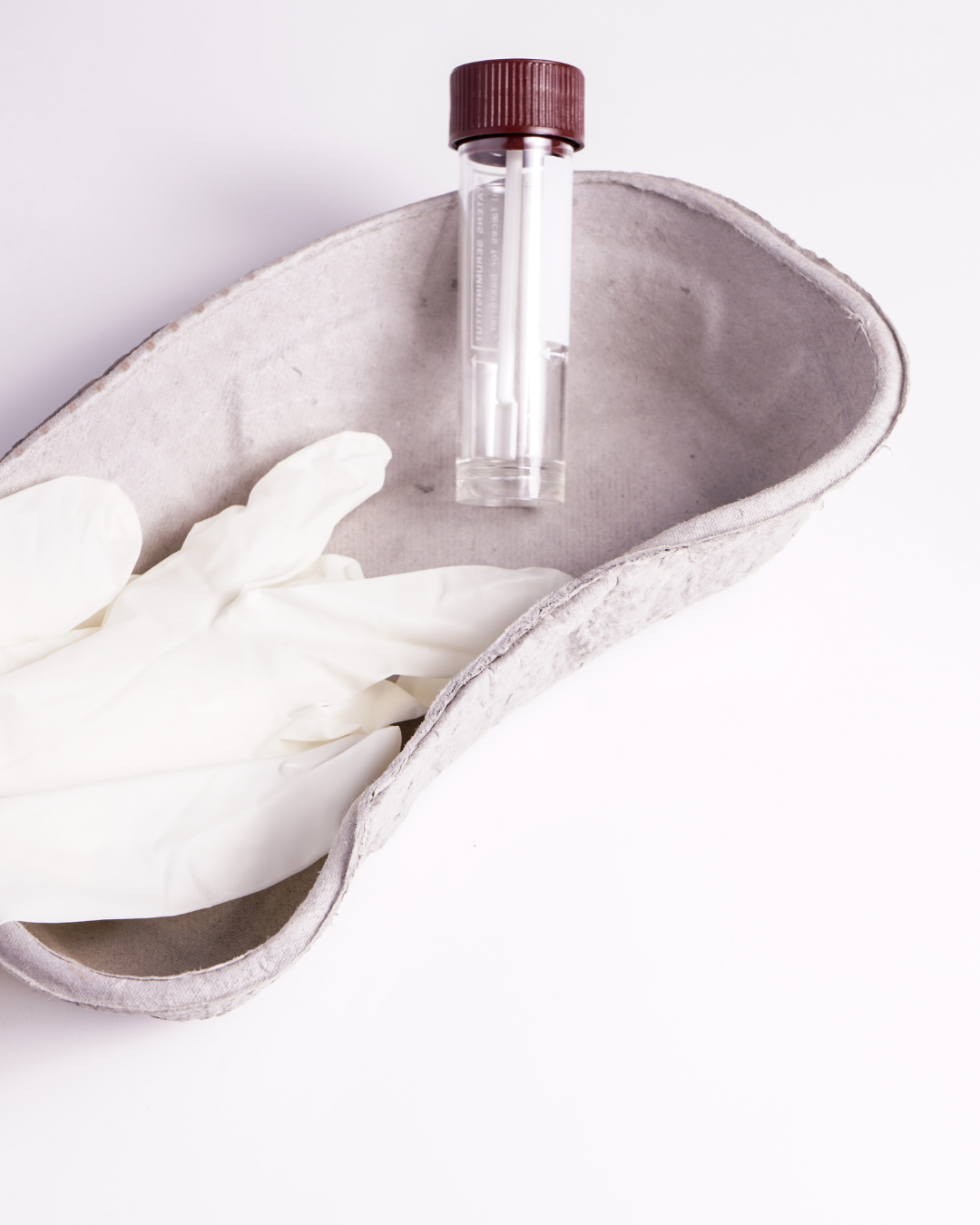Why Impulsivity Isn’t Just “Bad Behavior”
When Inflammation Hijacks Your Decisions
Have you ever found yourself blurting something out and regretting it right away?
Or maybe you made a purchase you couldn’t really afford, snapped at your partner, or grabbed junk food even when you swore you’d eat better?
Most people chalk these up to “bad habits” or “lack of willpower.” But research is uncovering something shocking: inflammation can literally rewire how your brain makes decisions — pushing you toward impulsivity and poor self-control.
And for people with ADHD or PMDD, where impulsivity and emotional swings are already challenges, inflammation may be the hidden accelerant fanning the flames.
In this blog, we’ll break down:
What impulsivity actually is (and why it’s more than just “being reckless”).
The science linking inflammation to impulsive decisions and poor emotion regulation.
How this shows up in ADHD and PMDD.
The role of suicidal ideation and why impulsive acts can escalate in inflammatory states.
Which labs can uncover hidden inflammation (bloodwork, OAP, GI-MAP, HTMA, DUTCH, genetics).
Functional strategies that actually work to calm the fire.
And at the end, I’ll share how I help my patients uncover and address their unique drivers of impulsivity with a functional approach — so decisions can feel calmer, clearer, and more in your control.
What Is Impulsivity, Really?
Impulsivity is often seen as “acting without thinking,” but research paints a more complex picture. It can include:
Acting before considering consequences.
Trouble inhibiting responses (blurting, interrupting).
Preference for immediate rewards (“I’ll take it now!”).
Risk-taking even when you know better.
Difficulty learning from past mistakes.
A review in World Journal of Psychiatry explains that impulsivity isn’t just a trait — it can also be a state. That means your impulsivity can spike during certain times, like under stress, during hormonal shifts, or when inflammation is high. This is why someone with ADHD or PMDD might feel “like a different person” some days.
Even more startling: impulsivity and poor decision-making are bridges to suicidal behavior. The same review found that when brain circuits for reward and inhibition are under stress, people can shift from suicidal thoughts to attempts because the brain misjudges suicide as the “quickest relief.”
The Inflammation–Impulsivity Connection
One of the most jaw-dropping studies comes from Scientific Reports (2019). In a group of 159 healthy young adults, researchers measured inflammation markers like IL-6 and TNF-α, then tested decision-making.
The result?
Even subclinical inflammation (not enough to cause illness) predicted more impulsive, present-focused decisions and an inability to delay gratification.
In fact, inflammation explained 12.9% of the variance in impulsive decision-making — an unusually strong number in behavioral science.
And the link held even after controlling for sleep, BMI, stress, and alcohol.
Translation: inflammation was driving the impulsivity, not the other way around.
Emotion Regulation, Inflammation, and the Impulsivity Loop
It doesn’t stop at quick decisions. How you handle emotions is also tied to inflammation. A systematic review in Clinical Psychology Review (2022) looked at 66 studies. The findings:
Poor emotion regulation was consistently linked to higher inflammation.
People who suppress emotions or ruminate on negative events had higher CRP, IL-6, and TNF-α.
Those who practiced positive regulation skills (like reframing or mindfulness) had lower inflammation.
This creates a vicious cycle:
Inflammation makes your brain more reactive.
You overreact emotionally.
Stress from that reaction fuels even more inflammation.
This loop is especially dangerous in conditions like ADHD and PMDD, where emotion regulation challenges are already baked in.
ADHD, Inflammation, and Impulsivity
ADHD is often thought of as a dopamine disorder, but mounting evidence suggests inflammation plays a big role too.
A meta-analysis of 32 studies (Journal of Psychosomatic Research, 2022) found that people with ADHD had higher IL-6 (g ≈ 0.70) and lower TNF-α compared to controls.
Another review in European Neuropsychopharmacology (2024) concluded that ADHD is best understood as a neurodevelopmental disorder with a neuroinflammatory component. IL-6 elevations were one of the most consistent findings, especially in kids.
Oxidative stress and gut dysbiosis were highlighted as key amplifiers of ADHD symptoms, including impulsivity.
This matches what I see in practice: patients with ADHD often show inflammatory markers on labs, even if they “look healthy” on the surface.
PMDD, Inflammation, and Decision-Making
For those with PMDD, the luteal phase (the week or two before the period) can feel like a rollercoaster. Impulsivity, anger, and even suicidal thoughts can spike seemingly out of nowhere.
Research helps explain why:
Hormonal shifts in the luteal phase trigger immune changes, increasing pro-inflammatory cytokines.
Inflammation disrupts prefrontal cortex control (planning, inhibition) while revving up the amygdala (fear, anger).
A meta-analysis in Clinical Psychology Review found that inflammation-related changes in brain circuitry directly impair emotion regulation — leading to impulsive or high-risk decisions.
This is why someone with PMDD can feel calm and rational in the follicular phase, but then suddenly find themselves snapping, crying, or thinking “I just need relief now” when inflammation is high.
Inflammation and Suicidal Ideation
Perhaps the most sobering link is between inflammation and suicidality. A 2020 review in Molecular Psychiatry found:
Patients with suicidal thoughts or attempts often had significantly higher IL-6 and TNF-α compared to peers.
Post-mortem studies showed microglial activation — overactive brain immune cells — in people who died by suicide.
Cytokines like IL-6 directly affect dopamine and glutamate, the same pathways that govern reward, self-control, and impulsivity.
This makes inflammation not just a background factor, but a potential driver of life-or-death decisions.
Where Does Inflammation Come From?
Some inflammation is obvious (like an infection), but much of what I see in my clinic is hidden, chronic, low-grade inflammation. Drivers can include:
Gut dysfunction: dysbiosis, leaky gut, hidden infections.
Nutrient deficiencies: low zinc, magnesium, vitamin D, B vitamins.
Hormonal imbalances: estrogen/progesterone swings, thyroid dysfunction.
Blood sugar dysregulation: insulin resistance fuels “metaflammation.”
Toxin or heavy metal load.
Stress and trauma: even psychological stress leaves an inflammatory fingerprint.
How Functional Labs Uncover Hidden Inflammation
Here’s where functional medicine shines. Instead of guessing, we test.
Bloodwork
IL-6, TNF-α, CRP, WBC count.
Nutrients: vitamin D, B12, folate, ferritin, zinc, copper, magnesium.
Thyroid panel, fasting glucose/insulin.
OAP (Organic Acids Profile)
Oxidative stress markers.
Neurotransmitter cofactor needs.
Mitochondrial function (fatigue makes self-control harder).
Microbial metabolites.
GI-MAP
Calprotectin, secretory IgA, beta-glucuronidase.
Pathogens, yeast, H. pylori.
HTMA (Hair Tissue Mineral Analysis)
Zinc-to-copper ratio (dopamine balance).
Magnesium, sodium/potassium.
DUTCH
Cortisol patterns (stress response).
Estrogen/progesterone metabolites (luteal phase balance).
Genetic Testing
IL6, TNF variants.
COMT, MAOA, DRD2/DRD4 (reward/inhibition).
MTHFR/MTRR (methylation, detox).
PEMT, CHKA (choline metabolism)
Together, these labs help pinpoint where inflammation is hiding — and why impulsivity might be spiking.
Functional Strategies That Work
Once we see the patterns, we can target them. Some evidence-based supports include:
Nutrition: omega-3s, polyphenols, antioxidant-rich foods.
Supplements: vitamin D, magnesium, zinc, probiotics, NAC (shown to lower inflammation and improve self-control in early ADHD trials).
Lifestyle: sleep optimization, exercise (moderate, not extreme), nervous system regulation practices.
Gut repair: addressing dysbiosis, restoring gut lining, supporting digestion.
Hormone support: balancing estrogen/progesterone in PMDD, optimizing thyroid.
These aren’t quick fixes — they’re long-term shifts that lower inflammation and rebuild resilience in the brain’s decision-making circuits.
Why This Matters
Here’s what all the research tells us:
Inflammation doesn’t just make you tired or achy. It changes how your brain makes choices.
Impulsivity isn’t simply “bad behavior” — it’s often biology under stress.
For ADHD and PMDD, inflammation may be the missing piece explaining why impulsivity can feel so unmanageable.
Functional medicine offers tools to test and address inflammation at the root.
My Call to You
If impulsivity, poor decisions, or emotional snap reactions are running the show, it may not be your fault. It may be inflammation whispering in your brain’s ear, pushing you toward “now” choices at the expense of your long-term goals.
The good news? You can change this.
I help clients uncover hidden inflammation using advanced labs — bloodwork, OAP, GI-MAP, HTMA, DUTCH, and genetics when appropriate. From there, we build a personalized plan with nutrition, herbs, lifestyle, and nervous system support to calm the fire and strengthen your brain’s brakes.
👉 Ready to see if inflammation is driving your impulsivity?
Or, if you’re not ready for a call
and start learning how to advocate for the right tests with your provider.
You don’t have to white-knuckle your way through impulsivity. With the right tools, you can get your biology back on your side — and make decisions that feel aligned, calm, and intentional.
References
Elliott, M. V., Johnson, S. L., Pearlstein, J. G., Muñoz Lopez, D. E., & Keren, H. (2023). Emotion-related impulsivity and risky decision-making: A systematic review and meta-regression. Clinical psychology review, 100, 102232. https://doi.org/10.1016/j.cpr.2022.102232
Gassen, J., Prokosch, M. L., Eimerbrink, M. J., Proffitt Leyva, R. P., White, J. D., Peterman, J. L., Burgess, A., Cheek, D. J., Kreutzer, A., Nicolas, S. C., Boehm, G. W., & Hill, S. E. (2019). Inflammation Predicts Decision-Making Characterized by Impulsivity, Present Focus, and an Inability to Delay Gratification. Scientific reports, 9(1), 4928. https://doi.org/10.1038/s41598-019-41437-1
Gvion, Y., Levi-Belz, Y., Hadlaczky, G., & Apter, A. (2015). On the role of impulsivity and decision-making in suicidal behavior. World journal of psychiatry, 5(3), 255–259. https://doi.org/10.5498/wjp.v5.i3.255
Han, V. X., Patel, S., Jones, H. F., Nielsen, T. C., Mohammad, S. S., Hofer, M. J., Gold, W., Brilot, F., Lain, S. J., Nassar, N., & Dale, R. C. (2021). Maternal acute and chronic inflammation in pregnancy is associated with common neurodevelopmental disorders: a systematic review. Translational psychiatry, 11(1), 71.
Jakobi, B., Vlaming, P., Mulder, D., Ribases, M., Richarte, V., Ramos-Quiroga, J. A., Tendolkar, I., van Eijndhoven, P., Vrijsen, J. N., Buitelaar, J., Franke, B., Hoogman, M., Bloemendaal, M., & Arias-Vasquez, A. (2024). The gut-microbiome in adult Attention-deficit/hyperactivity disorder - A Meta-analysis. European neuropsychopharmacology: the journal of the European College of Neuropsychopharmacology, 88, 21–29. https://doi.org/10.1016/j.euroneuro.2024.07.004
Misiak, B., Wójta-Kempa, M., Samochowiec, J., Schiweck, C., Aichholzer, M., Reif, A., Samochowiec, A., & Stańczykiewicz, B. (2022). Peripheral blood inflammatory markers in patients with attention deficit/hyperactivity disorder (ADHD): A systematic review and meta-analysis. Progress in neuro-psychopharmacology & biological psychiatry, 118, 110581. https://doi.org/10.1016/j.pnpbp.2022.110581
Moriarity, D. P., Grehl, M. M., Walsh, R. F. L., Roos, L. G., Slavich, G. M., & Alloy, L. B. (2023). A systematic review of associations between emotion regulation characteristics and inflammation. Neuroscience and biobehavioral reviews, 150, 105162. https://doi.org/10.1016/j.neubiorev.2023.105162
Osborn, E., Brooks, J., O'Brien, P. M. S., & Wittkowski, A. (2021). Suicidality in women with Premenstrual Dysphoric Disorder: a systematic literature review. Archives of women's mental health, 24(2), 173–184. https://doi.org/10.1007/s00737-020-01054-8



